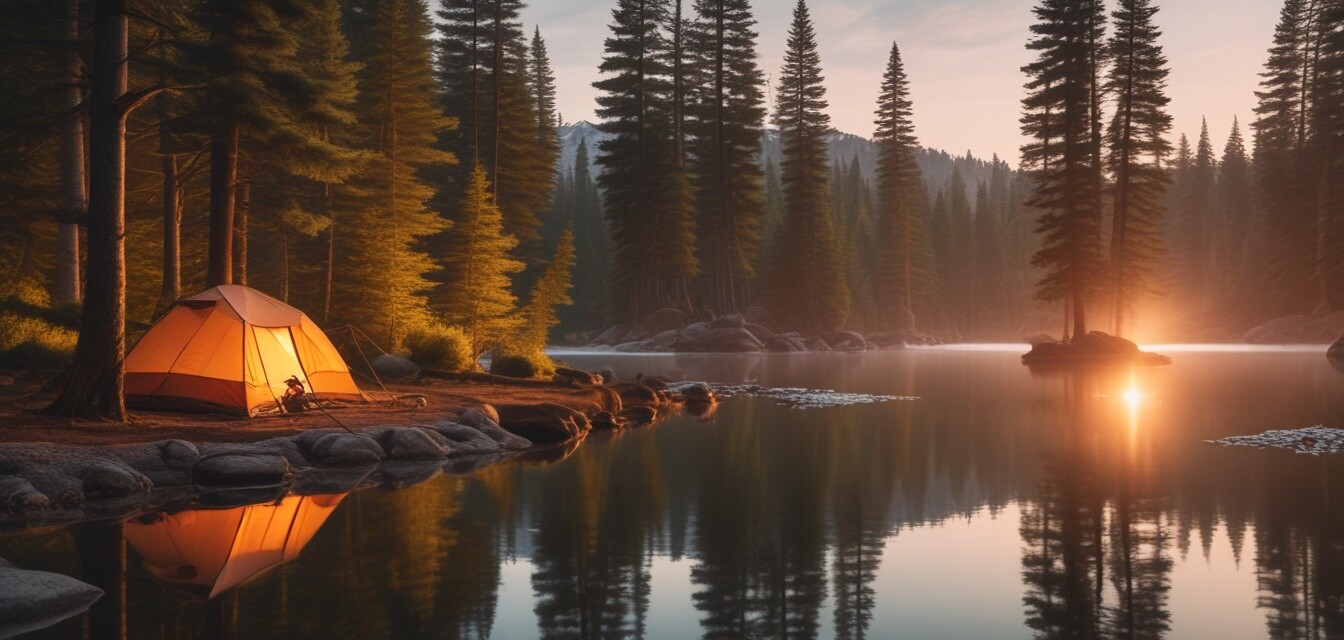
Preparing for Your First Solo Camping Trip
Key Takeaways
- Choose a campsite that is safe and beginner-friendly.
- Prioritize safety with proper planning and packing.
- Set clear expectations for your solo experience.
- Practice basic camping skills before you go.
- Embrace the solitude and enjoy nature.
Embarking on your first solo camping trip can be both exhilarating and daunting. It’s an opportunity to connect with nature, reflect, and enjoy some much-needed solitude. However, planning and preparing effectively is crucial to ensure a successful adventure. In this guide, we will cover essential tips that every beginner should consider when preparing for their first solo camping trip.
Planning Your Trip
Before you set out for your solo adventure, thorough planning is key. Here are the steps to follow:
- Choose Your Location: Select a campsite that aligns with your comfort level. Consider established campgrounds with amenities to start, such as those discussed in our Camping Buying Guides.
- Check Weather Conditions: Research the weather forecast to ensure you’re prepared for any changes during your trip.
- Create a Packing List: Make a detailed list of items you'll need, including gear, food, and safety equipment.
Safety First
Your safety is paramount when camping alone. Consider the following precautions:
- Share Your Itinerary: Inform a friend or family member about your camping plans, including your destination and expected return time.
- Pack a First Aid Kit: Always have a basic first aid kit handy for any minor injuries.
- Know the Area: Familiarize yourself with the local wildlife and terrain. Understand any potential hazards in the area.
Essential Gear for Solo Camping
Invest in durable and lightweight gear to make your camping experience comfortable and enjoyable. Here’s a table showcasing essential gear items:
| Item | Purpose |
|---|---|
| Tent | Provides shelter and protection from the elements. |
| Sleeping Bag | Offers warmth and comfort while sleeping. |
| Camping Stove | Used for cooking meals during your trip. |
| Flashlight/Headlamp | Essential for navigating around the campsite at night. |
| Backpack | Helps in carrying all your gear easily. |
Enjoying Solitude
One of the most rewarding aspects of solo camping is the chance to embrace solitude. Here are some tips to help you make the most of it:
- Unplug: Disconnect from technology to fully immerse yourself in the experience.
- Make Time for Reflection: Bring a journal or sketchbook to document your thoughts and experiences.
- Connect with Nature: Take time to enjoy your surroundings, whether it's going for a hike or simply sitting quietly in nature.
Practice Makes Perfect
Before your actual solo trip, it's wise to practice some basic camping skills. Try these techniques:
- Practice Setting Up Your Gear: Familiarize yourself with your tent and other equipment at home.
- Cook a Meal Outdoors: Test out your camping stove and meal prep in your backyard or at a local park.
- Spend a Night in Your Backyard: This will help you get used to sleeping outside and test your gear.
After Your Trip
Once you return from your solo camping trip, take a moment to reflect and evaluate your experience. Here are some questions to consider:
- What did you enjoy the most?
- What challenges did you face, and how did you overcome them?
- What would you do differently on your next trip?
Pros
- Enhances self-reliance and confidence.
- Allows for personal reflection and growth.
- Provides a unique connection with nature.
Cons
- Can be intimidating for first-timers.
- Potential safety concerns if not prepared.
- May experience loneliness if not mentally prepared.
Final Thoughts
Preparing for your first solo camping trip is an adventure in itself. By planning ahead, prioritizing safety, and embracing solitude, you can create a memorable experience in the great outdoors. Remember to approach this trip with an open mind and the willingness to adapt. For more tips on camping essentials, check out our Camping Tips and Tricks section. Happy camping!